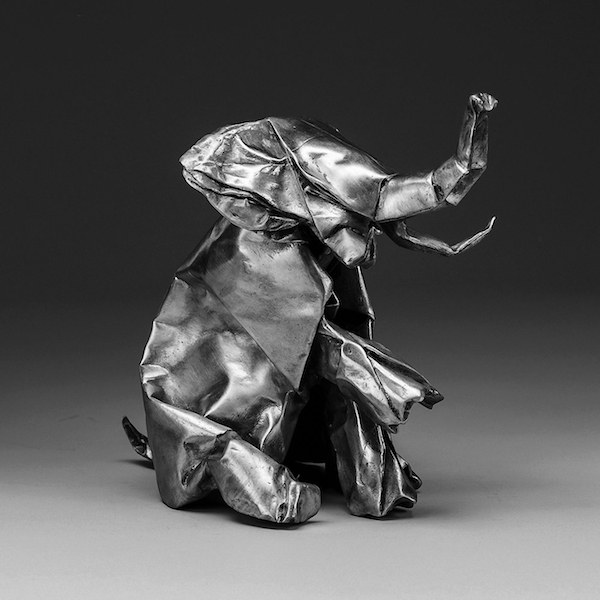Black Origami
The sophomore album from the brilliant producer turns the tools of footwork into an overwhelming piece of musical architecture, an epic treatise on where rhythm comes from and where it can go.
Jlin’s relationship with genre has always been complicated. For as long as she has been recording, the Gary, Ind. producer has been associated with footwork, the hyperactive post-house music spawned alongside the equally chaotic competitive dance style popular in neighboring Chicago. Superficially, the affiliation makes sense. She counts both footwork godfather RP Boo and its most revered son, the late DJ Rashad, among her mentors and made her earliest appearance on the second installment of Planet Mu’s genre-survey Bangs & Works. But she built these ties at a distance; not from weekend road trips into Chicago but from hand-me-down juke tapes and, later, through Myspace messages and extended phone conversations with her influences.
This is, of course, a uniquely 21st-century phenomenon: an artist situating themselves at the center of a culture, particularly such a socially oriented one, from the comfort of their bedroom. And this outsider/insider contradiction has long been a source of power for Jlin, giving her the means to master the tools of this potent style while still operating without any obligation to its conventions. On Dark Energy, her 2015 debut, this meant stripping footwork’s stuttered-triplet-everything model down to its skeleton and draping it in frigid industrial textures; her day job at a steel mill provided critics with a too-perfect shorthand for the project’s brutalist impulses. The follow-up, Black Origami, is more difficult to define, moving further away from footwork’s literal sonic qualities while reclaiming and amplifying the genre’s already imposing physicality.
Black Origami is a gorgeous and overwhelming piece of musical architecture, an epic treatise on where rhythm comes from and where it…

Comments